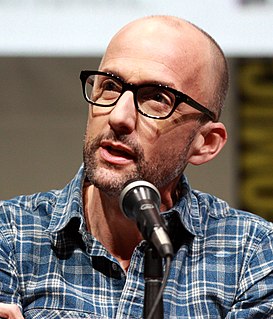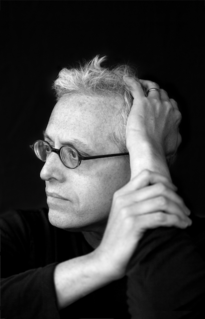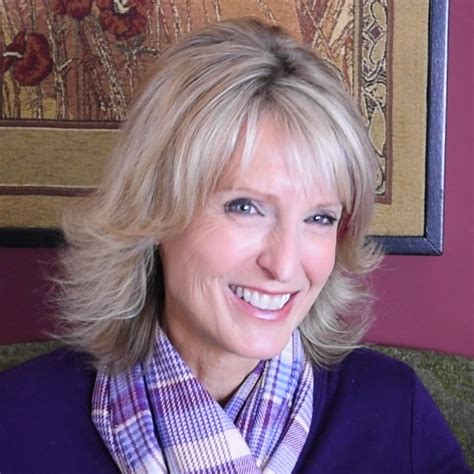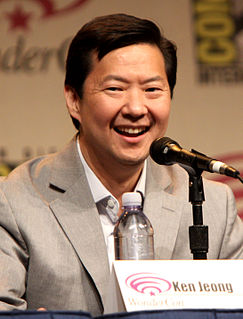A Quote by Diane Ackerman
I think that very often younger writers don't appreciate how much hard work is involved in writing. The part of writing that's magic is the thinnest rind on the world of creation. Most of a writer's life is just work. It happens to be a kind of work that the writer finds fulfilling in the same way that a watchmaker can happily spend countless hours fiddling over the tiny cogs and bits of wire. ... I think the people who end up being writers are people who don't get bored doing that kind of tight focus in small areas.
Quote Topics
Appreciate
Areas
Art Of Writing
Being
Bits
Bored
Cogs
Countless
Creation
Doing
End
Finds
Focus
Fulfilling
Get
Happens
Happily
Hard
Hard Work
Hours
How
How Much
Involved
Just
Kind
Life
Life Is
Magic
Most
Much
Often
Over
Part
People
Same
Small
Spend
Think
Tight
Tiny
Up
Very
Way
Wire
Work
World
Writer
Writers
Writing
Younger
Related Quotes
I think the first thing - if you want to be a writer - the first thing you need to do is write. Which sounds like an obvious piece of advice. But so many people have this feeling they want to be a writer and they love to read but they don't actually write very much. The main part of being a writer, though, is being profoundly alone for hours on end, uninterrupted by email or friends or children or romantic partners and really sinking into the work and writing. That's how I write. That's how writing gets done.
I can't define myself as a political writer - I don't think I've earned it, and I don't function as a political writer in the way that many of the writers I admire do. It's not simply a question of context, of where I'm writing from - there is much in American society that urgently needs to be written about. I think your work is always engaged with politics in the looser sense of the word - and that looseness is itself a kind of privilege - because politics and culture are evidently intertwined.
The people who review my books, generally, are kind of youngish culture writers who aspire to write books. When someone writes a book review, they obviously already self-identify as a writer. I mean, they are. They're writers, they're critics, and they're writing about a book about a writer who's a critic. So I think it's really hard for people to distance themselves from what they're criticizing.
I have a hard time writing. Most writers have a hard time writing. I have a harder time than most because I'm lazier than most. [...] The other problem I have is fear of writing. The act of writing puts you in confrontation with yourself, which is why I think writers assiduously avoid writing. [...] Not writing is more of a psychological problem than a writing problem. All the time I'm not writing I feel like a criminal. [...] It's horrible to feel felonious every second of the day. Especially when it goes on for years. It's much more relaxing actually to work.
I always wanted to be a scientist. I don't really have any writer friends. The process of being a writer is much more interior than being a scientist, because science is so reactionary. I think that all research scientists think of themselves as belonging to a grand tradition, building on work that has been worked on since the very beginning of science itself. Whereas I'm not sure writers think of themselves in the same way.
I hate being called lazy, so when everybody gets up at half seven in the morning, I'm up at the same time. Everyone goes to work and I'll do a few hours of writing, then I'll mess about for a bit and come back to it. By the time I go home I'm done. I think it's really good to keep that kind of a routine with writing. I find that when I don't do that, it's really hard to get back into that headspace of writing.
As an undergraduate, I took two writing workshops taught by Elizabeth Hardwick. She was certainly a major influence, though more as a writer I greatly admired than as a teacher. As for other writers, I think it's safe to say that my work has been and continues to be influenced to one degree or another by every writer whose work I love and admire.
It takes a certain kind of mind to narrate, to work through character motivation, to be unforgiving to one's writer-self when it comes down to creating the minutiae of detail. Writing fiction requires stamina, a sense of how people's lives work, how people work toward and against one another and, above all, precision.
I love the students - they are remarkable, inspiring people. I would miss teaching if I stopped doing it. The kind of work I do is pretty diverse: I can cast a play while doing a polish of a screenplay, while thinking about a new play and revising another. In other words, the kind of work that I do during my work day is not just writing, yet it is all part of the job of being a playwright.
Pretty much all comic-book people, like all Hollywood people, for the most part, are pretty liberal. I think especially UK writers. Alan Moore is probably the most radical guy you'll ever meet. I grew up loving those guys, so my heroes, as a kid, were radical cartoonists, essentially. I couldn't help but - I grew up in a left-wing household. But I do think it's fun, writing right-wing characters. I've found it interesting, just as a writer, to get inside their heads and make them likeable.
I just feel very grateful to be a part of that, to be a part of a winning team... I'm trying hard not to be used to it, but I am kind of. It is something where I've run out of people that I want to work with because I've worked with everybody I ever wanted to. I really have. I can't think of anyone I'd want to work with right now because I'd just want to work with the same people again.
Some people think that writers are innately solitary and that there's a kind of romance to that solitariness. I tend to think that what writers really want to do is get accepted into things. They want to get accepted into society, into culture, into intelligentsia, into the fun. Writing is their mechanism, their instrument, for doing that.







































